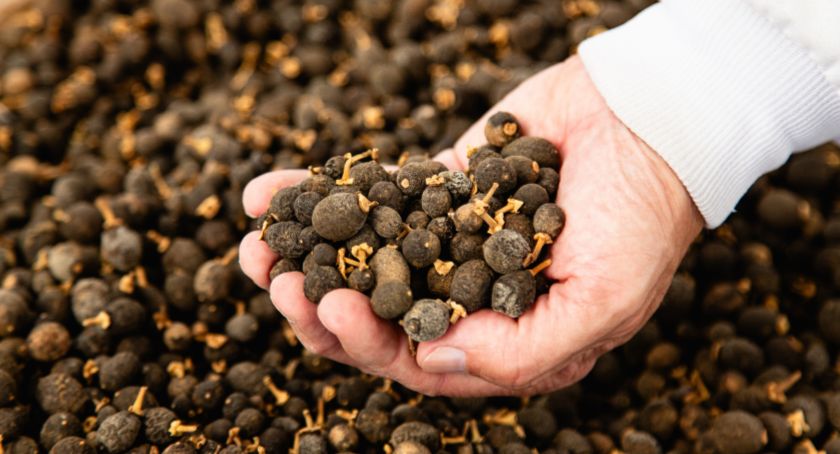Exclusives
Kratom May Have Medical Benefits as Opioid Alternative
As part of the food supply, the untested herb could have unintended consequences, according to NPA.

By: Sean Moloughney
A ban on kratom by the U.S. Drug Enforcement Administration (DEA) would stifle scientific understanding of the herb’s active chemical components and documented pharmacologic properties, according to a special report published in the Journal of the American Osteopathic Association.
The report cited the pharmacologically active compounds in kratom, including mitragynine, 7-hydroxymitragynine, paynantheine, speciogynine and 20 other substances, as one basis for further study. It also emphasized the extensive amount of anecdotal evidence and current scientific research that indicates kratom may be safer and less addictive than current treatments for pain and opioid withdrawal.
“There’s no question kratom compounds have complex and potential useful pharmacologic activities and they produce chemically different actions from opioids,” said author Walter Prozialeck, chairman of the Department of Pharmacology at Midwestern University Chicago College of Osteopathic Medicine. “Kratom doesn’t produce an intense euphoria and, even at very high doses, it doesn’t depress respiration, which could make it safer for users.”
Kratom (Mitragyna speciosa) is indigenous to Southeast Asia, where the plant was used for centuries to relieve fatigue, pain, cough and diarrhea and aid in opioid withdrawal. Currently sold in the U.S. as an herbal supplement, kratom drew DEA scrutiny after poison control centers noted 660 reports of adverse reactions to kratom products between January 2010 and December 2015.
“Many important medications, including the breast cancer treatment tamoxifen, were developed from plant research,” said Mr. Prozialeck.
“While the DEA and physicians have valid safety concerns, it is not at all clear that kratom is the culprit behind the adverse effects,” said Anita Gupta, DO, PharmD and special advisor to the FDA.
Dr. Gupta, an osteopathic anesthesiologist, pain specialist and licensed pharmacist, has treated a number of patients who’ve used kratom. “Many of my patients are seeking non-pharmaceutical remedies to treat pain that lack the side effects, risk, and addiction potential of opioids,” she said.
Kratom is currently banned in states including Alabama, Florida, Indiana, Arkansas, Wisconsin and Tennessee. The DEA is scheduled to decide whether to place kratom on its list of Schedule 1 drugs, a classification for compounds thought to have no known medical benefit. Marijuana, LSD and heroin are Schedule 1 drugs, which prevents the vast majority of U.S.-based researchers from studying those substances. The full report can be reviewed here.
Meanwhile, in formal comments to the DEA, the Natural Products Association (NPA), Washington, D.C., said that adding kratom to the U.S. food supply could likely be dangerous, leading to serious unintended consequences as the nation struggles with the crisis of opioid addiction.
DEA announced its intention to classify kratom as a Schedule I substance on Aug. 31, 2016. On Oct. 12, the DEA said it would hold an open comment period until Dec. 1. NPA’s comments, signed by Executive Director and CEO Dan Fabricant, PhD, can be viewed in full here.
“Adding an untested and unregulated substance such as kratom to our food supply without the application of longstanding federal rules and guidelines would not only be illegal, it could likely be dangerous, leading to serious unintended consequences as our nation struggles with the crisis of opioid addiction,” he said.
“The safety record of the dietary supplement and natural products industry is far superior to prescription drugs or even conventional foods because of a strong federal regulatory regime, significant investment in product safety and quality, consumer demand and self-regulatory programs developed by the men and women of our industry, who want to help people lead healthier lifestyles.”
NPA supports the prosecution of criminal activity, and has robust internal measures and quality assurance programs to report bad actors to authorities, he continued.
“As former Food and Drug Administration (FDA) officials and regulators of the dietary supplement industry, we can tell you that finished kratom products and raw kratom botanical ingredients have not met the strict standards products and new ingredients must adhere to in order to be marketed to the public and deemed safe for regular use in either our food or our drug supply.”
“Self-medicating with kratom is dangerous without the necessary pre-market approval process set forth by our public health experts at FDA. Even if kratom were delivered as a food, kratom has never been filed as a new dietary ingredient to FDA’s Center for Food Safety and Applied Nutrition.”





















